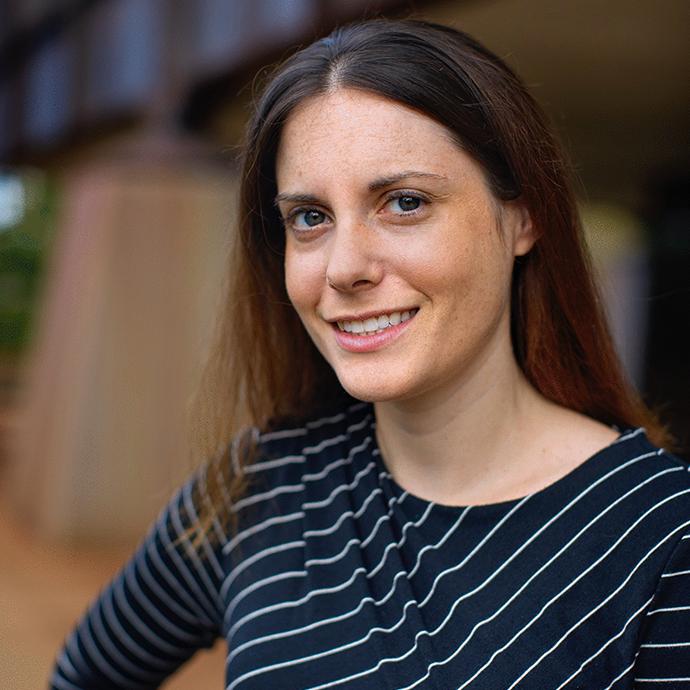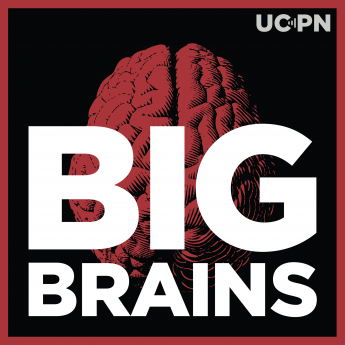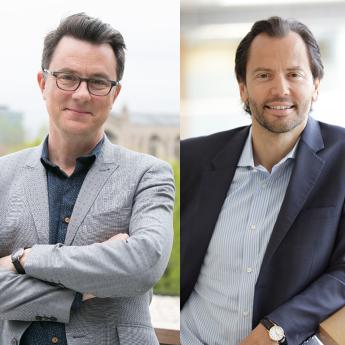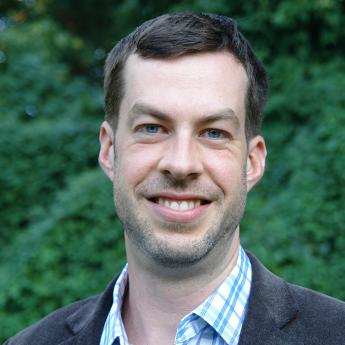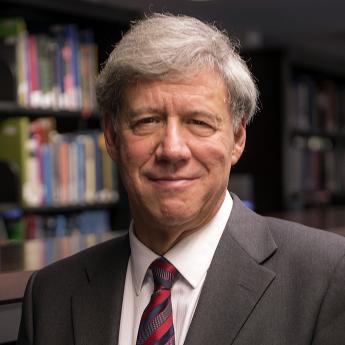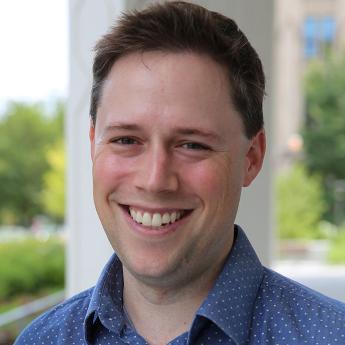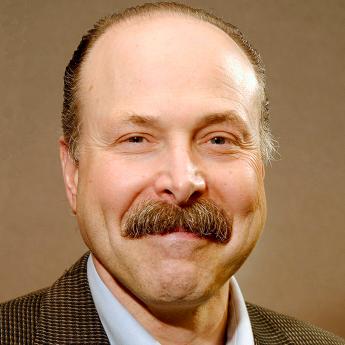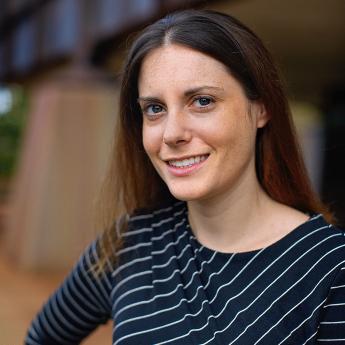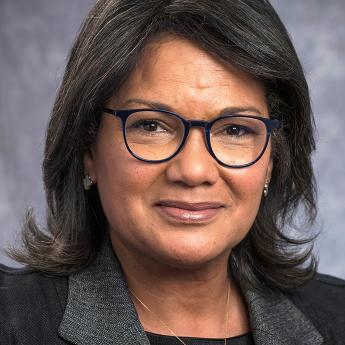Show Notes
The way we talk is probably not something most of us spend a lot of time thinking about, but when it comes to communicating, what we’re saying may only be as important as how we say it.
That’s what Prof. Katherine Kinzler of the University of Chicago argues in her new book, How You Say It: Why You Talk the Way You Do—And What It Says About You—an innovative exploration of how speech creates and deepens our social biases, starting from the point of view of children. With our national discourse focused on discrimination based on race, she says a largely overlooked aspect of that conversation extends beyond skin color: discrimination based on speech.
Subscribe to Big Brains on Apple Podcasts, Stitcher and Spotify.
(Episode published August 13, 2020)
Related:
Transcript:
Paul Rand: The way we talk is probably not something most of us spend a lot of time thinking about, but what if the way we actually speak says a lot about who we are, what we value and who’s in and who’s out?
Katherine Kinzler: We don’t always realize that when we talk, we’re not just conveying the content of our speech, we’re also conveying a lot about who we are when we open our mouth and speak.
Paul Rand: Katherine Kinzler is a professor of psychology at the University of Chicago and the author of the new book, How You Say It: Why You Talk the Way You Do—And What It Says About You. It’s an innovative exploration of how speech creates and deepens social bias, starting from the point of view of children.
Katherine Kinzler: Kids are incredibly attentive to how somebody sounds, and they’re absorbing cultural messages about race.
Paul Rand: We’re talking a lot these days about discrimination based on race, but as Kinzler’s research shows a hugely overlooked aspect of that, that extends beyond skin color is discrimination based on speech. When it comes to communicating with each other, what we’re saying may only be as important as how we say it.
Paul Rand: From the University of Chicago, this is Big Brains, a podcast about the pioneering research and pivotal breakthroughs that are reshaping our world. On this episode, re-thinking the social power of speech. I’m your host, Paul Rand.
Paul Rand: Katherine Kinzler has been studying speech and identity for over a decade. How does it play out in social groups? Does it change in a person over time? And why do accents and dialects carry so much weight, and where does this all start? Kinzler started to find the answers by going back to the beginning of human development and studying kids, which is easy for her because she has two of them.
Katherine Kinzler: I do. I have a six-year-old and an eight-month-old.
Paul Rand: So we’re not worried about the eight-month-old language as much, I’m assuming yet, but probably getting there. But one of the things you talk about is you say, when you speak, you are revealing to others the voices who talked to you as a child. That’s a really weighty topic. Give me some expansion on that.
Katherine Kinzler: So actually, the eight-month-old is learning. Long before kids are producing their first words, they’re actually kind of getting tuned up on the speech around them. So there are some really interesting studies showing that even babies are becoming acclimated to the sounds of their native language. Some people say babies start out as universal listeners. So what that means is that right away, babies are able to hear all these different contrasts in language. They can hear different sounds, whether they’re native or foreign and tell them apart. They don’t know what they mean of course, but they can hear the difference. Then over the first year of life, babies get tuned up on the sounds that are native to them, but then they actually start to lose the ability to differentiate sounds that might be foreign.
Katherine Kinzler: So even though my baby’s only eight months old, he’s already kind of tuning into the languages that he hears. So when I say that you’re forever marked by the voices you heard as a child, it’s to say that your brain and your way of speaking is taking into account the language that you hear as a child and it’s really hard to learn a nonnative language and particularly, a non-native accent as an adult. Now, people’s language does shift over the course of their lives, but often you’re sort of forever speaking in a way that reflects the input that you got when you were young.
Paul Rand: Because kids can so easily detect when someone sounds different from who they’re used to, they have this early inclination to prefer the familiar, which makes sense. It’s human nature. We all want to be around people who are like us. This also sets us up to make assumptions about anyone different from us.
Katherine Kinzler: It’s really easy for messages from society that might stigmatize one group of speakers to seep into kids. When you feel linguistically othered and when people aren’t aware of the bias in the world, it can be really hard for people who speak in a way that people see as being nonstandard or different in some way.
Paul Rand: Talking about kids, you did do an experiment with kids around Northern and Southern accents. Can you give us a little insight into that?
Katherine Kinzler: This was a study that I did at the University of Chicago with my former doctoral student, Jasmine DeJesus, and Jasmine and I were really interested in how socio-linguistics stereotypes develop. So we’ve found in other research that kids have this sort of preference for native. They like people who speak in a familiar way or the way that they hear in their local community. But that’s really different from a stereotype where you might think a certain thing about a group of people based on the way they speak. So one stereotype that’s kind of out there in public media is the idea that people who sound like they’re from the North, and of course these regions are fuzzy, there aren’t specific bounded regions, but people who sound like they’re from the North sound more educated or smarter or high status as compared to somebody who’s from the South who might sound nicer, but stereotyped as being lower on these other kinds of intelligence variables.
Katherine Kinzler: So we tested a group of kids who were living in Chicago, which we would consider to be the North for our study and a group of kids who were living in the South. We played them voices from both regions. We found that the group of kids in kindergarten, so these are five- and six-year-old kids, they liked the voices that were familiar to them. So the kids in the North liked the Northern voices and the kids in the South were actually sort of equal between the two. Now, I think they hear a lot of different dialects, particularly if you include media exposure. It’s probably no surprise that kids watch a lot of media in this country. So at five or six, it was sort of like we have this preference for familiar, but they didn’t really know anything about the speech or where it was from, or have any particular attitudes about different ways of speaking.
Katherine Kinzler: But we tested a group of fourth graders, so these were nine and 10 year olds, and we saw something pretty interesting. So kids in both places in the North and the South thought that the northerners sounded smarter and in charge and the Southerners sounded nicer.
Paul Rand: Nicer? OK.
Katherine Kinzler: Yeah. What I was really surprised by was kind of the parallel across the kids in the two different communities that they both converged on learning the same stereotypes, and it included stereotypes that were both favorable about their own group, as well as stereotypes that painted the other group in a better light. So it wasn’t just that the Northern kids were learning, “Maybe northerners are smarter, and I don’t know who’s nicer,” something like that, but rather they were learning it both ways in both places.
Paul Rand: One of the things that surprised me most about Kinzler’s research is that young kids often notice how much someone sounds more than how someone looks. Distinguishing based on sound is innate. Distinguishing based on skin color is not. Even though systemic racism is all around us, it’s important to remember that it is learned. It is not pre-programmed.
Katherine Kinzler: Kids are incredibly attentive to how somebody sounds and they’re absorbing cultural messages about race, but they’re not racist right away in life. They’re living in a society that’s teaching them racism, but young kids don’t necessarily see skin color as denoting something terrifically meaningful about human groups. That’s something that being embedded in a racist society teaches kids. Now, in contrast right away, they do seem really attentive of how somebody speaks. So when kids hear how somebody speaks, they infer a lot of meaning from that. I’ve found in some studies that often kids, just young kids just aren’t as attentive of skin color as adults would be.
Paul Rand: Very interesting. Well, again, if I’m a parent listening to this, I’m thinking, “I’m going to rush out because I have to get my kid exposed to as many languages as I possibly can.” Is that something that people listening should take away from this?
Katherine Kinzler: It’s hard. So if you’re in a situation where, say a grandparents’ speaks a different language, often parents are in the situation of having a heritage language and they’re kind of making a decision about whether or not to maintain that for their child. My advice would be absolutely, yes. Go for it. I think it has a lot of advantages for kids to learn another language, but I also think it has advantages for families to maintain that piece of their culture. Now, if you’re a parent who your whole family speaks English, you live in an English speaking place, your kids are going to in English, I don’t want those parents to think that all hope is lost because it’s not.
Katherine Kinzler: Now, some of my research has shown that even somewhat limited exposure to a language other than English can be beneficial in terms of giving kids practice in perspective taking, practice and thinking about who speaks what to whom, who understands what content? And that can be really effective for building communication skills. So I would say to to those parents that finding some way to expose your kids to different languages is really important and really beneficial, but it doesn’t have to be necessarily that they have to be in a fully bilingual environment.
Katherine Kinzler: The other advice I’d give to parents, which I see a lot when kids come into my lab is that when kids express early race-based preferences, say a white kid says they like the other white kids, parents are really deeply uncomfortable. Now, as they should be. Right? So this is really important and society is grappling with racism. I think that many parents are well intentioned and want to raise kids who fight against racism. But I often say the opposite, which is that if a kid comes into my lab and says they like all the American sounding English speakers, parents don’t seem concerned. Now, this isn’t true about all parents, but many parents don’t seem concerned. It’s kind of, you get this more feeling in the room like, “My kid’s really good at learning languages.” So I think kind of just being aware of the role of linguistic prejudice in society is something that can help parents educate their children about the importance of language in society too.
Paul Rand: Now, of course, we did not have a national language in this country, but there is a cultural perception, however wrong, that speaking English is being American. Some people have even tried to institute that into law.
Katherine Kinzler: I talk in the book about this historic Supreme Court case, Meyer v. State of Nebraska. Basically, this was the idea that right after world war one, there were a number of state laws that popped up about saying that it was illegal to teach children a language other than English while they were young in any sort of school. So the Supreme Court case was in 1923, but I’m kind of the most infamous law was in Nebraska in 1919. This was overturned, and the law was deemed unconstitutional, but I think you kind of see this in modern times—this wariness of foreign language learning. Part of the wariness is this idea that if you speak a language other than English, the fear was that if you spoke a language other than English, it would bring these thoughts to mind that were somehow anti-American in some way. So I think you see this today with national discourse about linking English speaking with being American, when in fact, it doesn’t need to be the case.
Paul Rand: You have talked about a linguistic revolution that need to happen in schools. What do you mean by revolution?
Katherine Kinzler: It’s the idea of prioritizing language, so thinking that having kids learn more than one language, be exposed to more than one language, value linguistic diversity, that that’s something that we could do as a society and that could be part of our set of values. I really think that schools are the way to start. Now, for parents, back to the parents who don’t speak a language other than English, it’s really hard to figure out a way to expose your kid to more than one language, even if you like that as an ideal. But kids come together in school and schools can teach kids while they’re still really young and really able to learn. So part of it is about learning languages, but I also think part of it is about a cultural value of tolerance and of excitement around the idea of linguistic diversity for all kids.
Paul Rand: There was also a recent congressional study that in essence, pointed out that we’re falling behind.
Katherine Kinzler: Yeah, that’s absolutely right. So this was a bipartisan congressional study, so one of those few-
Paul Rand: Right.
Katherine Kinzler: ... one of those few examples of bipartisan efforts. So the finding, this was in 2014 and the general finding was that we’re far more monolingual than many other nations. As the report argues, this could change, but it’s something that would require awareness and investment. So there’s this one quote that I found particularly impactful, “It is critical that we work together at this moment in history when there is so much to gain by participating in a multilingual world and so much to lose if we remain stubbornly monolingual.”
Katherine Kinzler: So if you look at stats on when kids are learning languages, now you can see many school districts don’t start teaching kids until middle school. If you go back to this critical period in language acquisition, for many kids, that’s getting on the later side that they’re not going to be as good at picking up a language in middle school as they would be when they were an early elementary school. Then many schools don’t have the resources or means to offer foreign language instruction at all. So the idea is that really, we might want to think about education as... One facet of education is language learning and something that we might want to prioritize
Paul Rand: Coming up, how language evolves as an adult, what it reveals about you and your biases. That’s coming up after the break.
Paul Rand: Around the world, teams are racing to find a vaccine, but even before anyone finds one, the pandemic economics podcast asks; how will the price of this vaccine be set? On this episode, we discussed this conundrum with the Dean of the Harris School of Public Policy, Katherine Baicker and Nobel Laureate, Richard Thaler. That’s on Pandemic Economics, the research driven economics podcast to help you navigate this moment from University of Chicago’s Becker Friedman Institute for Economics. Subscribe and listen now to Pandemic Economics.
Paul Rand: The world today is facing a social reckoning. Conversations about systemic racism have burst into the national spotlight, and all kinds of issues of inequality are now part of mainstream discourse. At the heart of it all is the way social groups are divided by race, class, gender, sexual orientation, nationality, the state where you’re from, the list just goes on. The interesting thing is that these groups often correlate to specific patterns of speech. So when you talk, you’re often conveying what groups you identify with in ways that you’re probably not even aware of. When you hear other people talk, you’re making judgments about what groups they identify often also, without even knowing it.
Paul Rand: We’ve talked on this show and many other places about the importance of community, and I imagine that language does create a bond and a sense of community. Is that right?
Katherine Kinzler: Language is about communication and it’s about social connection. Some people ask, “Well, why can’t we all just speak the same language? Why can’t we just have this one language that everybody speaks in the world and they speak at exactly the same?” And the reason we can’t have that is because new groups of community change their speech to reflect their communal bond, and that’s how languages shift. So different groups of people are going to speak together in a way that reflects their shared cultural identity, and that’s a really positive and powerful thing. At the same time, you’ve got this flip side of discriminating against people or communities that speak differently from you.
Paul Rand: This flip side of discrimination based on speech, especially in combination with other forms of racism has serious consequences. Your accent alone can dictate your economic opportunity in life, even though ironically, we rarely talk about it.
Katherine Kinzler: One way that I think that prejudice against speech can be sort of this really sort of insidious form of racism is that people don’t realize they’re doing it. So for instance, you can look at prejudice against African American English, which I’ll just note upfront is a dialect of English just as great as any other dialect, that no dialects are inherently better or worse or better or able to communicate all of the thoughts that people could have in the world, yet certain dialects can be stigmatized. That of course reflects a history of structural racism. So what you find is that people will say things like, “Well, I just don’t understand her speech,” or, “It’s just not that clear.” So in that sense, you can really be tremendously biased against someone, but you don’t feel like you’re being racist.
Katherine Kinzler: You feel like you’re just talking about language and about communication, but inherent in your judgment of speech and your judgment of comprehensibility, that race is wrapped up in that. There’s just a number of studies showing that people’s assessments of what they can and can’t understand, or who sounds credible, who sounds like they’re saying something true and who doesn’t sound like they’re saying something true, that can all be informed by your judgment of the dialect or accent that someone’s using. Even when you can absolutely understand someone perfectly, sometimes people will say, “I just feel like I didn’t understand them that well.” So it’s sort of this sneaky way that racism can impact people’s judgements of somebody’s credibility.
Paul Rand: In the same breath, people can just as quickly, if they perceive it as being too difficult, to have to listen to something different, they could tune out and that becomes of its own type of bias. Isn’t it?
Katherine Kinzler: Absolutely. So when we think about communication, often you kind of think, “Okay. I said my thing. It’s out in the world. Now, it’s your job to receive it.” But actually, communication is two-sided. And so if somebody... If you don’t like the way somebody sounds, you might just shut down and not even realize that you’re doing it. Then it can kind of derail the conversation that if you speak and I shut down, then your next utterance isn’t going to be as informative as it might otherwise have been because you’ll sense that I’m shutting down. So it can kind of have this negative circular pathway.
Paul Rand: One place this plays out: employment discrimination. Kinzler says that society at large treats accents and dialects as a permissible form of bias, especially in workplaces. The logic goes like this, “I’m not discriminating against you. It’s just the way you talk. It won’t work in this organization.” When it comes to employment, that’s perfectly legal. The only exception is that you can’t use speech to get information about someone’s nationality. That would be illegal, but it’s not the only way discrimination presents itself.
Katherine Kinzler: Now, if I say, “It’s not that I don’t like people who share your national origin. It’s just that I don’t think you’re a very good communicator. I think that you have an accent that’s very difficult for people to understand,” that’s where employment law starts to get really complicated because there’s this notion that it’s okay to make employment decisions based on communication. Now, I think what I just said, that does seem very reasonable, right? If you’re in a job where you need to communicate, you want someone who’s a good communicator. Now, the problem is that so much of our perceptions of communication can have social bias seep in. So when I hear you, if I feel like the way you’re talking is just a way I don’t like, if it’s kind of stigmatized or it just doesn’t feel right to me in some way, I might then, as you were saying before, shut down and stop listening and think that I can’t understand you when in fact, actually I absolutely could.
Katherine Kinzler: Now, one place I think that’s a really clear example of this that comes up is actually in an educational where students are evaluating their teaching assistants. There’s been a lot of studies or just a lot of popular discourse about students complaining, undergraduate students complaining about foreign teaching assistance, right? So these are graduate students. They might be from another country. Then they help the undergraduate students learn and people complain, “Well, my foreign TA doesn’t speak English well. How am I going to learn the science from them?” Or those sorts of complaints. Now, some sociolinguists have looked at students’ evaluations and found that students’ evaluations of whether or not they can understand somebody have to do with language. They have to do with race. And often, people invent the idea that they can’t understand somebody.
Katherine Kinzler: So to give one really clear example, one socio-linguistics study had a bunch of students listen to sample lectures by a TA, and then they just showed them the face of the person and the person either looked white or looked Asian. When the undergraduates thought that their TA looked Asian, many of them sort of inferred a foreign accent and thought that they couldn’t understand them as well, even though all participants were listening to the same voice. In fact, in the study, I think the voice of the person was somebody who grew up in Ohio.
Paul Rand: So we’ve been talking for a good bit and our listeners are probably going to do the same thing that I’m doing because now, I’m listening to the way that you talk. If you have analyzed how you talk and people are listening to saying, “Well, that’s interesting what Katie’s talking and how she saying.” What are they hearing in your voice and your speech patterns and your dialect?
Katherine Kinzler: Yeah. So I grew up in New York when I was little and then Connecticut, after that. Now, I would say that a lot of people think that they don’t have an accent. So I think that the way I speak is approximately from the region. There are several regions kind of generally in the Northeast, but excluding New York city, excluding people from in the city and Boston, kind of in the Northeast, Midwest, a little bit in California, that’s sort of seen as the place where people think that they don’t have an accent. Now, I think it’s important to remember that that is not true. And of course, logically it doesn’t make any sense that if you’re thinking about the way that you pronounce words, everybody has an accent. So I think that’s a really important thing to remember. Linguists, and I do this in my book too, I talk about people’s perceptions of standard American English, but of course, that phrase is loaded to, that it’s implying that one thing is standard and another thing isn’t. So I do think that the field is probably going to change in the sense that no one way of speaking needs to be the standard way.
Paul Rand: Got it. Language changes throughout our lives.
Katherine Kinzler: It does.
Paul Rand: Tell me what you mean by that and give me some examples.
Katherine Kinzler: So you can think of language in two ways. So one way we’ve been talking about it is kind of this you’re forever marked by these voices you heard as a kid and you can never kind of shake that native way of speaking. Now, the flip side of that is more at the margin. So you’re not going to all of a sudden learn Russian and sound completely convincingly like you are Russian. It’s also pretty rare that you’re actually going to spend some time in the UK and sound convincingly British. The flip side to that is kind of within your dialect, people’s voices change a lot over the course of their lifespan. A lot of that reflects their social aspirations, where they want to go in life, who they’re hanging out with now.
Katherine Kinzler: So one example that people often point to is adolescence. Various features of speech come out in adolescence, and part of that is probably this kind of fighting against the old tradition, that you want to make your own group and one way of doing that is to speak in a different way. Now, older adults have forever thought that the adolescents sounded terrible. So this is something that comes out generation after generation, that older adults complain about the way that young people speak, but this is how languages evolve because the adolescents are coming into their own.
Paul Rand: Interesting. So you give example in your book, what you called the gay speech?
Katherine Kinzler: Yeah.
Paul Rand: When somebody comes out, their friends may notice that their language changes. Talk about that.
Katherine Kinzler: One question is kind of, is there such a thing as gay speech? And if so, what is it? I think the consensus in linguistics is that among some gay men, and you see this among men, you don’t see this as much among women, there are some characteristic vowel patterns that come out more often among gay men than straight men. Now, this isn’t everybody, right? So these are overlapping distributions, but if you take a bunch of people, you were asked to pick out voices of gay and straight men, you might be slightly above chance and other people would agree with you, right?
Katherine Kinzler: So there’s something that’s coming out. So the question is what? Researchers have looked at things like, “Well, are vocal tracks different? Could this be something biological that’s different in the way the voice is producing speech?” The answer seems to be no in the idea that there’s nothing different in the length of the vocal tracks between gay and straight men, nothing like that. Now, what it probably is, is something that’s more social and cultural. So if you’re in a group of speakers, you take on the vocal properties of that group of speakers. So in that sense, this is how any speech community can develop a certain characteristic way of speaking.
Paul Rand: But I think you said that it could actually switch. So is this a conscious decision where somebody…
Katherine Kinzler: Yeah.
Paul Rand: Not always?
Katherine Kinzler: Not always. So I think it can be, but a lot of our speech isn’t, that when we want to be a certain way, when we affiliate or feel like we’re part of a certain group, our voice kind of morphs. Now, some people call this the chameleon effect in psychology, and it could be about your actions too. When somebody is kind of making some mannerisms across from you and you like them, you tend to do those more. Now, that happens in our speech too, that if you’re talking to somebody you like, your voices kind of come together a little bit and become a little bit closer. The kinds of vowels you make, pick up on the vowels that you hear across from you. So this kind of social accommodation can happen and can reflect not just who you are now, but also where you’re going, where you socially feel comfortable and where you want to be.
Paul Rand: So if people are traveling, they’re fitting in, they’re going to maybe talk louder or try to adopt the accent. Maybe it’s a little bit of both. That’s a natural thing it sounds like.
Katherine Kinzler: It’s a natural thing. So I talk about politicians. So sometimes people complain about politicians like, “Look at this politician who’s sounding this one way when they’re in the North and this other way when they’re in the South, and it seems completely disingenuous.” Now, perhaps some of that is disingenuous. I don’t mean to say that there’s no way that somebody could manipulate their voice purposefully. But I think a lot of it is that when you’re with a group of people and you feel like you’re connecting with them, your voice does shift to match there. So it’s not at all always conscious or intentional. It can just happen by way of typical social speech.
Paul Rand: So you’re getting ready to launch your book, and when you started putting this book together, what was it that you were hoping people were going to take away from it?
Katherine Kinzler: So I hope that they start to appreciate how much the way we speak matters for all facets of our social lives. Parts of that are really good, like thinking about who you connect with and where your group is, that your language is such a critical component of your culture and your social connections and that’s great. But then we also need to be aware of how we can very quickly judge others based on how they speak. We can think somebody speaks right or speaks incorrectly, and we get very judgey based on language. This isn’t just judging in a casual sense. This can have tremendous impact for people’s livelihoods, for their ability to get housing, for their feelings of being welcomed versus not in a society. So I think that we need to be aware of our biases and try to start to work to correct them.
Katherine Kinzler: Now, the other thing I hope people take from this book is that linguistic diversity, exposure to different languages and different dialects or accents is really positive for people. Often in the US, we have this mono-lingual myth. It’s sort of this idea that just speaking one language might be kind of cognitively safer. Your brain can definitely handle one language, so you wouldn’t want to tax a kid and have them learn too many. That’s just wrong. We’re set up with the ability to learn multiple languages. So another thing I hope people get from this book is this idea that multilingualism can really be a value, not a detriment and it’s something that as a society, we should try to promote.
Matt Hodapp: Big Brains is a production of the UChicago Podcast Network. If you like what you heard, please give us a review and a rating. The show is hosted by Paul M. Rand and produced by me, Matt Hodapp with assistance from Alyssa Eads. Thanks for listening.
Episode List
What Remains Unanswered After The 2020 Election, with William Howell and Luigi Zingales (Ep. 58)
UChicago economist and political scientist discuss the polls, what lies ahead for Biden and the country post-Trump
When Governments Share Their Secrets—And When They Don't, with Austin Carson (Ep. 57)
Scholar discusses the political theater of foreign policy—and the case for declassifying intelligence
How We Can Fix a Fractured Supreme Court, with Geoffrey Stone (Ep. 56)
Legal scholar examines how nomination of Amy Coney Barrett could tip an increasingly politicized bench
Correcting History: Native Americans Tell Their Own Stories (Ep. 55)
How scholars helped a Chicago museum rethink its representation of Indigenous peoples
The Future of Voting And The 2020 Election, with Assoc. Prof. Anthony Fowler (Ep. 54)
A leading political scholar discusses voting by mail, mobile voting and why he thinks it should be illegal not to vote.
Why The Quantum Internet Could Change Everything, with David Awschalom (Ep. 53)
A world-renowned scientist explores quantum technology and why the future of quantum may be in Chicago
The Way You Talk—And What It Says About You, with Prof. Katherine Kinzler (Ep. 52)
A leading psychologist explains how speech creates and deepens social biases
From LSD to Ecstasy, How Psychedelics Are Altering Therapy, with Prof. Harriet de Wit (Ep. 51)
A leading scientist explains the medical impacts of psychoactive drugs and the popularity of microdosing
How Can We Achieve Real Police Reform? with Sharon Fairley (Ep. 50)
Legal scholar examines whether civilian oversight, policy changes could increase accountability
Black Lives Matter Protests: Hope for the Future? (Ep. 49)
University of Chicago scholars examine the changing conversation around racial injustice and police reform
